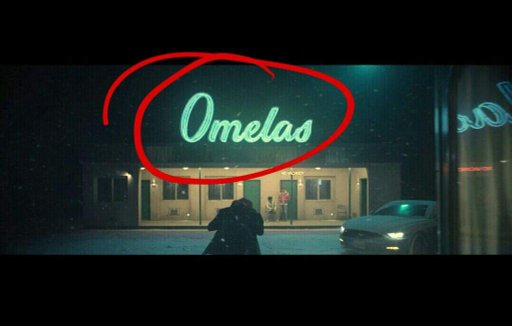



THE ONES WHO WALK AWAY FROM OMELAS CITATION HOW TO
He is a former column editor for English Journal (National Council of Teachers of English), current series editor for Critical Literacy Teaching Series: Challenging Authors and Genres (Brill), and author of Teaching Writing as Journey, Not Destination: Essays Exploring What ‘Teaching Writing’ Means (IAP, 2019) and How to End the Reading War and Serve the Literacy Needs of All Students: A Primer for Parents, Policy Makers, and People Who Care (IAP, in press). Thomas, Professor of Education (Furman University, Greenville SC), taught high school English in rural South Carolina before moving to teacher education. *Previously posted at The Daily Kos October 30, 2011, slightly revised here. While Le Guin’s story ends with some hope that a few have a soul and mind strong enough to walk away from happiness built on the oppression of the innocent, I feel compelled to long for a different ending, one where a few, a few rise up against the monstrosity of oppression and inequity, to speak and act against, not merely acquiesce or walk away. What’s behind our door in the U.S.? Over 22% of our children living lives in poverty through no fault of their own. In the U.S., we cloak the reality of privilege with a meritocracy myth, and unlike the people of Omelas, we embrace both the myth and the cloaking-never even taking that painful step of opening the closet door to face ourselves. The horror of this allegory is that the sacrifice is a child, highlighting for the reader that privilege comes to some at the expense of others through no fault of the closeted lamb. Le Guin’s sparse and disturbing allegory has everything that science fiction/ speculative fiction/ dystopian fiction can offer in such a short space-a shocking other-world, a promise of Utopia tinted by Dystopia, the stab of brutality and callousness, and ultimately the penetrating mirror turned on all of us, now.Īt its core, Le Guin’s story is about the narcotic privilege as well as the reality that privilege always exists at someone else’s expense. But they seem to know where they are going, the ones who walk away from Omelas. The place they go towards is a place even less imaginable to most of us than the city of happiness. They leave Omelas, they walk ahead into the darkness, and they do not come back. 282)Īnd how do the people of Omelas respond to this fact of their privilege at the expense of the sacrificed child? Most come to live with it: “Their tears at the bitter injustice dry when they begin to perceive the terrible justice of reality, and to accept it” (p. Some of them understand why, and some do not, but they all understand that their happiness, the beauty of their city, the tenderness of their friendships, the health of their children, the wisdom of their scholars, the skill of their makers, even the abundance of their harvest and the kindly weathers of their skies, depend wholly on this child’s abominable misery. Some of them have come to see it, others are content merely to know it is there. They all know it is there, all the people of Omelas. The “one more thing” is a child, imprisoned in a closet and its own filth-a fact of the people of Omelas “explained to children when they are between eight and twelve, whenever they seem capable of understanding”:

The narrator offers an assortment of glimpses into these joyous people and their Festival of Summer, and then adds:ĭo you believe? Do you accept the festival, the city, the joy? No? Then let me describe one more thing. O miracle! but I wish I could describe it better. They were mature, intelligent, passionate adults whose lives were not wretched. How can I tell you about the people of Omelas? They were not naive and happy children-though their children were, in fact, happy. The reader soon learns about a people and a land that leave the narrator filled with both a passion for telling a story and tension over the weight of that task: Le Guin ’s “ The Ones Who Walk Away from Omelas.”* “With a clamor of bells that set the swallows soaring, the Festival of Summer came to the city Omelas, bright-towered by the sea,” opens Ursula K.


 0 kommentar(er)
0 kommentar(er)
